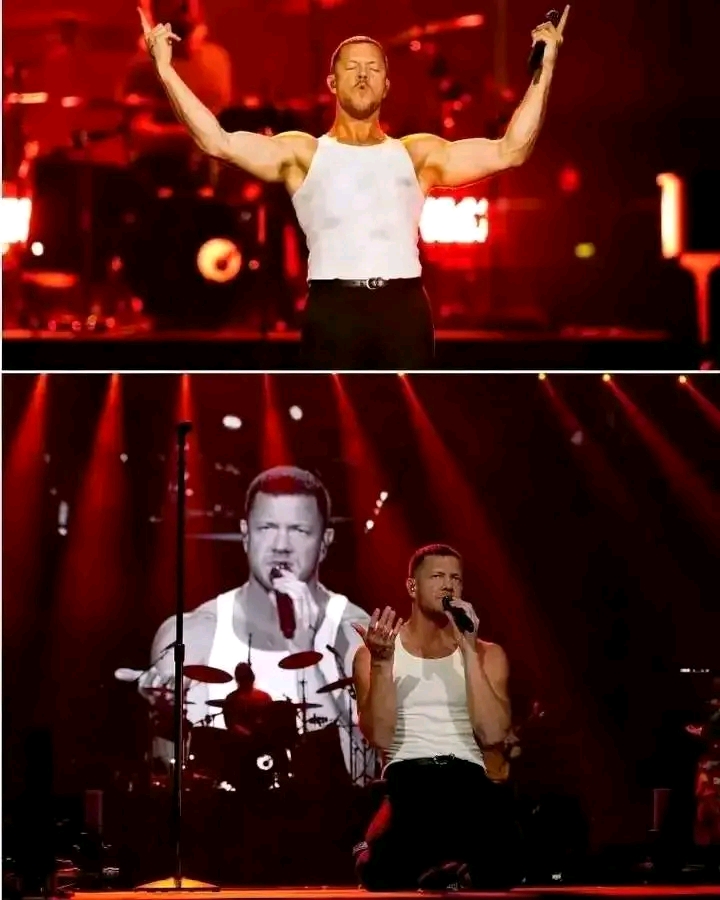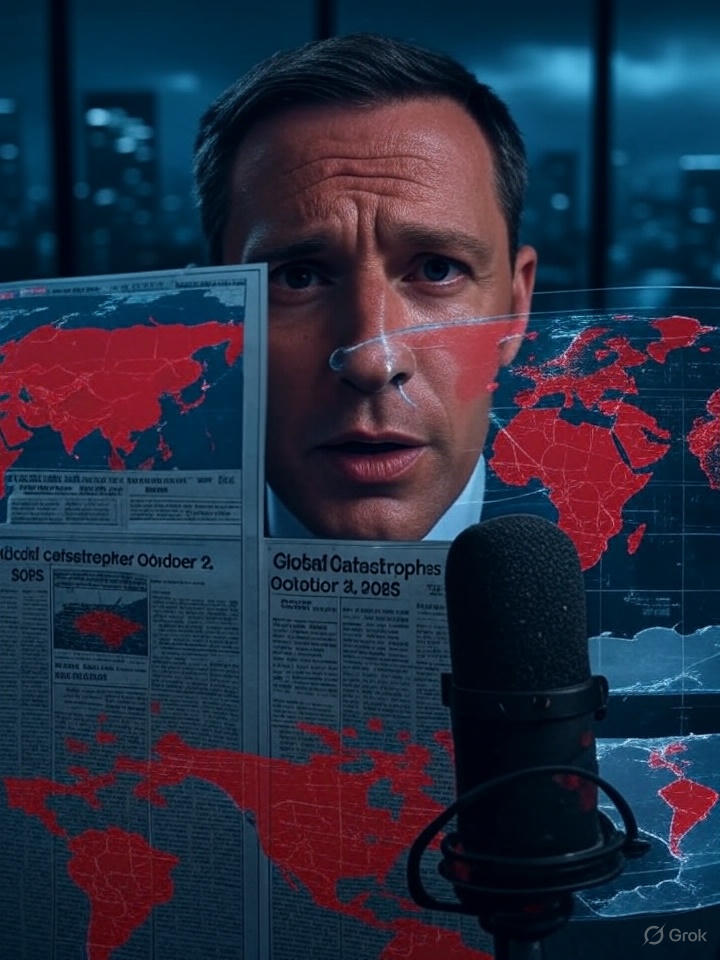### It’s OK to Be Not OK: Dan Reynolds’ Raw Confession and Its Ripple Effect
In the high-stakes world of rock stardom, where spotlights amplify every triumph and every crack in the facade, vulnerability can feel like a liability. Yet, for Imagine Dragons frontman Dan Reynolds, it’s become his greatest strength—and a beacon for the silently suffering. The phrase “It’s OK to Be Not OK,” born from a deeply personal lyric on the band’s 2021 album *Mercury – Act 1*, transcended its origins to become an anthem of quiet permission. What began as Reynolds’ on-stage unraveling evolved into a lifeline, echoing through arenas and into the lives of thousands grappling with invisible battles. This isn’t just a song; it’s a confession that shattered the myth of perpetual strength, reminding us that admitting fragility is the first step toward healing.
The story traces back to 2021, amid the chaos of a global pandemic that forced Reynolds inward. Imagine Dragons, known for arena-filling anthems like “Radioactive” and “Believer,” had always infused their music with raw emotion. But *Mercury* marked a pivot: a sonic descent into darkness, grappling with loss, sobriety, and the weight of fame. The track “It’s OK [to be not okay]” emerged from this turmoil, its chorus a simple, searing declaration: *“It’s okay to be not okay / It’s okay to fall apart sometimes.”* Reynolds penned it during a period of profound grief—friends lost to cancer, his own battles with ankylosing spondylitis, a chronic inflammatory disease, and the relentless pressure of fatherhood to four daughters while touring endlessly.
What elevated this from lyric to legend was Reynolds’ on-stage delivery. During live performances, particularly on the *Mercury World Tour*, the 37-year-old singer didn’t just sing the words; he embodied them. Picture a sold-out crowd at Madison Square Garden, pyrotechnics blazing, when Reynolds pauses mid-set. His voice cracks as he shares: “I’ve spent years hiding my pain, pretending everything’s fine because that’s what leaders do. But tonight, I need you to know—it’s okay if you’re not okay. I’m not either, sometimes.” Fans recall the moment as electric, a hush falling over 20,000 voices before erupting into communal catharsis. Videos of these confessions went viral on platforms like TikTok and YouTube, amassing millions of views. One clip from a 2022 Salt Lake City show captures Reynolds wiping tears, the audience chanting back the chorus like a shared therapy session.
This wasn’t performative; it was profoundly real. Reynolds has long been an advocate for mental health, founding the LOVELOUD Foundation in 2017 to support LGBTQ+ youth facing depression and suicide—a cause rooted in his Mormon upbringing and his sister’s coming-out struggles. The phrase became a mantra for LOVELOUD events, emblazoned on T-shirts and banners, but its power deepened when Reynolds tied it to his sobriety journey. In interviews, he’s candid about relapsing after years clean, admitting, “I thought I had to be unbreakable for my fans, my family. But pretending made it worse.”<grok:render card_id=”ce5e52″ card_type=”citation_card” type=”render_inline_citation”>
<argument name=”citation_id”>3</argument>
</grok:render> His vulnerability humanized him, turning the rock god into a relatable everyman.
The impact? Transformative. Thousands have shared stories online: a teenager in Ohio crediting the line with prompting her first therapy session; a father in the UK finally discussing his PTSD after hearing Reynolds’ plea. On Reddit and fan forums, threads titled “Dan Saved Me” overflow with testimonies—suicide averted, conversations ignited, isolation pierced. Data from mental health organizations like the National Alliance on Mental Illness (NAMI) shows a surge in helpline calls post-*Mercury* release, with phrases like Reynolds’ cited in outreach campaigns. It’s no coincidence that *Mercury* debuted at No. 3 on the Billboard 200, praised for its “brave emotional core.”<grok:render card_id=”6c9fa6″ card_type=”citation_card” type=”render_inline_citation”>
<argument name=”citation_id”>1</argument>
</grok:render>
Reynolds’ confession challenges the toxic masculinity baked into rock lore—the tortured genius who suffers alone. By contrast, he models emotional agility: “Vulnerability is a superpower,” he told *The Independent*, urging fans to “grow close through raw honesty.”<grok:render card_id=”77e843″ card_type=”citation_card” type=”render_inline_citation”>
<argument name=”citation_id”>1</argument>
</grok:render> In a post-pandemic era where 1 in 5 adults reports anxiety or depression, his words cut through the noise. They validate the messiness of being human, especially for men conditioned to “man up.”
Yet, the true genius lies in its simplicity. One raw sentence, screamed into a microphone, became a permission slip for the world. As Reynolds reflects in a *Behind the Brand* interview, “We’re all falling through space sometimes—just reach out.”<grok:render card_id=”1b0297″ card_type=”citation_card” type=”render_inline_citation”>
<argument name=”citation_id”>3</argument>
</grok:render> For those struggling in silence, it’s more than okay to break; it’s the bridge to wholeness. Dan Reynolds didn’t just confess—he liberated.



